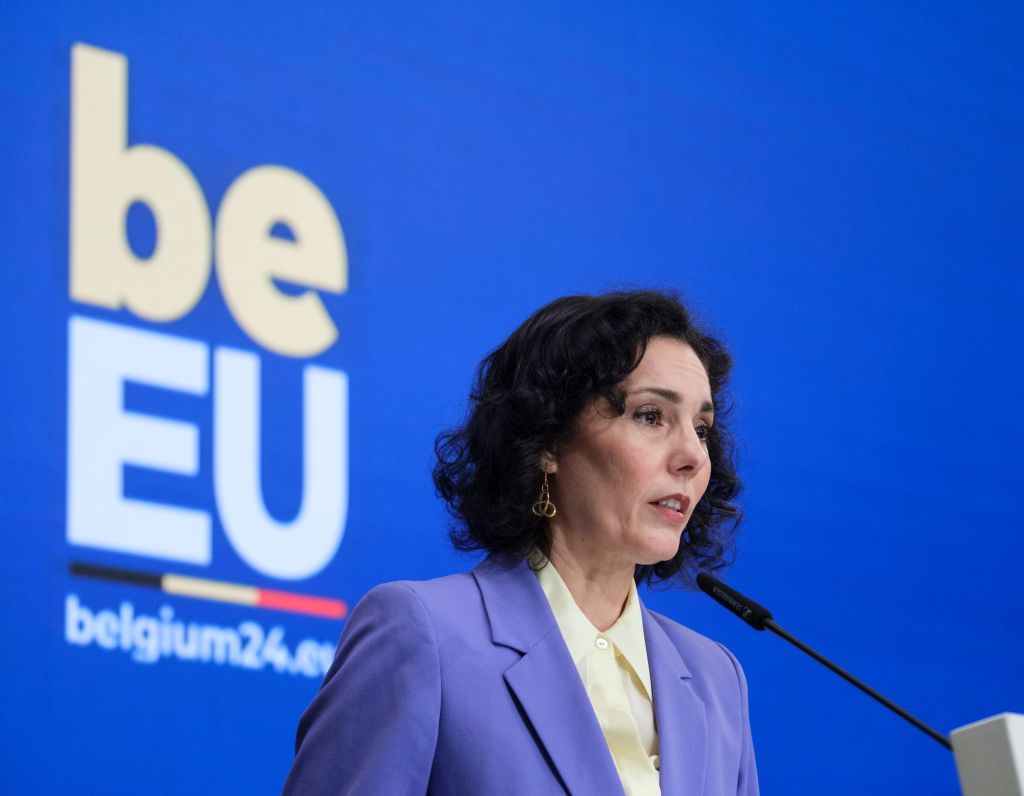Belgian Foreign Minister Hadja Lahbib has expressed commitment to beginning Ukraine’s EU accession negotiations before the end of Belgium’s rotating presidency in July. This follows a recommendation by the European Commission in November 2023 to launch accession talks with Ukraine, which was later agreed upon by the European Council. European Parliament President Roberta Metsola also stated during a visit to Kyiv that official negotiations on Ukraine’s accession to the EU should commence before the end of the first half of 2024. There are efforts to convince Hungary to drop its objections to Ukraine’s membership in the bloc, as Hungary has maintained close ties with Russia and opposed sanctions against Moscow.
Hungary’s stance on Ukraine’s EU accession has been a point of contention, with the country’s ties with Russia complicating efforts to create a unified front against Moscow’s actions in Ukraine. Despite this, there are ongoing diplomatic efforts to persuade Hungary to support Ukraine’s EU membership, with officials aiming to begin accession negotiations by June 25. The upcoming Hungarian presidency of the Council of the EU beginning on July 1 adds urgency to the matter, as decisions need to be made before Hungary assumes the rotating presidency. EU Ambassador to Ukraine, Katarina Mathernova, highlighted that 2030 is a realistic timeline for Ukraine to join the European Union, indicating a potential path forward for Ukraine’s integration into the EU.
The push for Ukraine’s accession to the EU comes amidst ongoing geopolitical tensions and Russia’s aggressive actions in the region. The EU’s support for Ukraine’s membership reflects a commitment to strengthening ties with the country and countering Russian influence. Despite challenges from countries like Hungary, there is a concerted effort to overcome obstacles and move forward with accession negotiations. The potential for Ukraine to join the EU by 2030 signals a long-term commitment to integration and further cooperation between Ukraine and the European Union.
The timeline for Ukraine’s EU accession negotiations is significant, as it reflects the broader geopolitical dynamics in Europe and the ongoing conflict in Ukraine. The European Union’s support for Ukraine’s membership demonstrates a commitment to the country’s European aspirations and a desire to bolster its security and stability. By working towards beginning negotiations before the end of Belgium’s presidency and potentially finalizing them by 2030, the EU is sending a clear message of support for Ukraine and a willingness to confront challenges posed by Russia’s actions in the region. The involvement of key players such as the European Commission, European Council, and European Parliament underscores the importance of this process and the collective effort to bring Ukraine closer to the EU.
The role of Hungary in this process highlights the complexities of EU decision-making and the challenges of maintaining a unified stance on Ukraine’s accession. Hungary’s close ties with Russia and opposition to sanctions against Moscow present obstacles to Ukraine’s EU membership, requiring diplomatic efforts to address these concerns. The upcoming Hungarian presidency of the Council of the EU adds a sense of urgency to resolving these issues and moving forward with accession negotiations. Despite these challenges, there is a shared commitment among EU member states to support Ukraine’s integration into the EU and counter Russian influence in the region. This collective effort reflects a broader strategy to strengthen Europe’s ties with Ukraine and promote stability and security in the region.
Overall, the prospect of Ukraine joining the European Union by 2030 represents a significant milestone in the country’s path towards greater integration with Europe. The EU’s support for Ukraine’s accession negotiations and the efforts to overcome obstacles such as Hungary’s objections demonstrate a shared commitment to advancing Ukraine’s European aspirations. As the geopolitical landscape in Europe continues to evolve, the potential for Ukraine to join the EU serves as a symbol of solidarity and cooperation in the face of external challenges. By working together towards this goal, the EU and its member states are reaffirming their support for Ukraine and their collective determination to promote peace and stability in the region.


